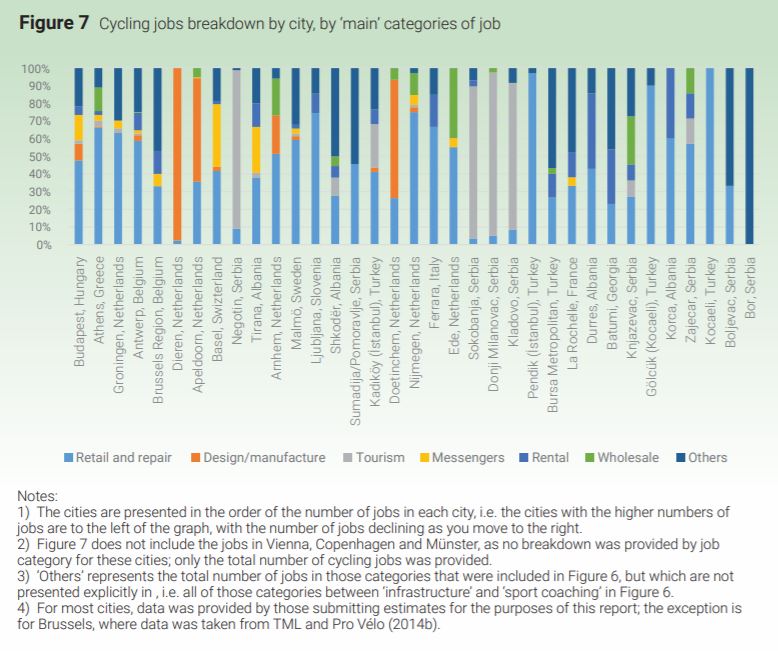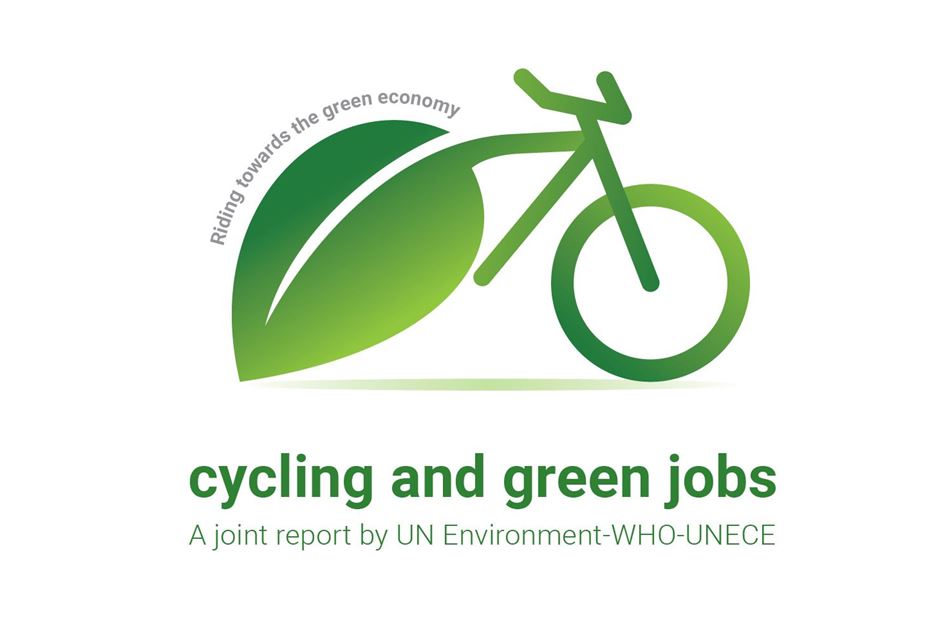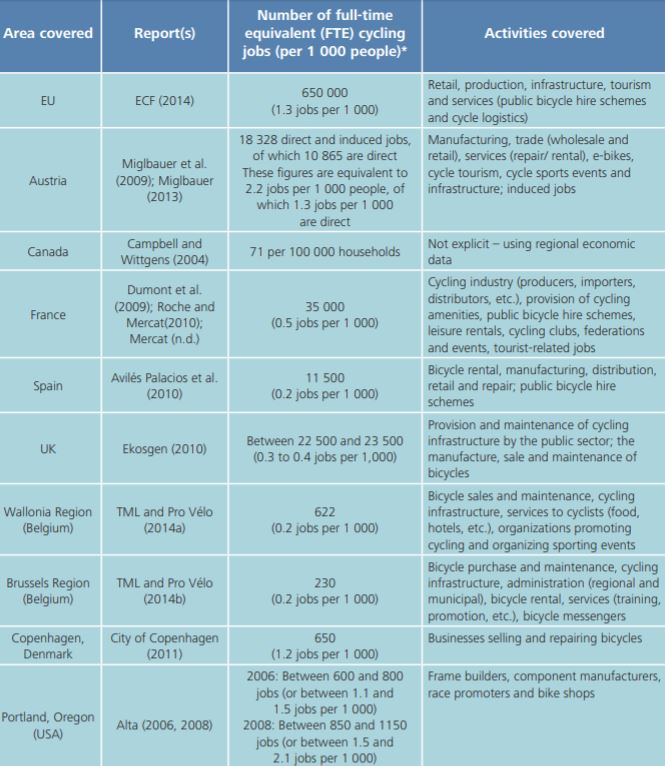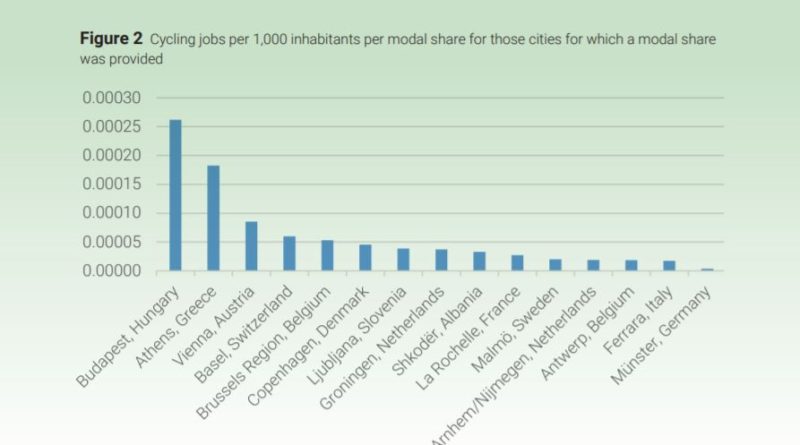UN and WHO study links high cycling modal share to 725,000 new jobs
A new joint report created by the World Health Organisation, the United Nations Environment Programme and the United Nations Economic Commission for Europe has outlined the potential for between 435,000 and 725,000 additional jobs if cities met Copenhagen’s cycling modal share.
 The research is based on estimates and data collected from 37 European cities using a standardised approach. It was demonstrated that increased cycling modal share creates jobs spanning manufacture, wholesale, tourism, retail, services and design, among other areas.
The research is based on estimates and data collected from 37 European cities using a standardised approach. It was demonstrated that increased cycling modal share creates jobs spanning manufacture, wholesale, tourism, retail, services and design, among other areas.
The majority of jobs stem from retail and repair, however there are notable exceptions where the growing market for cycle tourism is providing economic boom for regions.
In the Netherlands, the home of giants like Accell, manufacturing leads the way in job creation.
A priority of the UN’s 2030 Agenda for Sustainable Development, increasing cycling modal share is flagged as a key way to bolster green economies.
However, at present, so called ‘unsustainable transport’ (read polluters) accounts for 23% of all energy-related co2 emissions, something that is linked with a range of social and health problems. Indeed, it was recently discovered that pollution even contributes to levels of Type 2 Diabetes.
In its foreword, the authors outline that they hope the research will “inspire policymakers to promote the change we want and to move one step closer to the vibrant, sustainable and healthy cities where we wish to live.”
Key evidence flagged in the report includes the finding that cycling and walking initiatives are more labour intensive than those of roads; on average, cycling projects generated 11.4 jobs per each US$1 million invested, 9.9 jobs in pedestrian-only projects and 7.8 jobs in road-only projects (GarretPeltier, 2011).
 When benchmarked against cycling modal share Copenhagen, the researchers were able to build a model that indicates the potential across Europe.
When benchmarked against cycling modal share Copenhagen, the researchers were able to build a model that indicates the potential across Europe.
An earlier 2014 study used as part of the research was deemed conservative, having only analysed jobs in retail, wholesale and design. Further to this, two reports from Portland, Oregon added weight to the notion that cycling’s impact on the economy has traditionally been underestimated.
“Investment in cycling by public authorities can help to contribute to the development of a more cycling friendly transport culture in a city, which in turn encourages entrepreneurs to set up related businesses and to develop additional services. The number of new cycling jobs, such as those associated with public bicycle hire schemes and bicycle parking, can be significant,” starts the reports summary.
In reaching the report’s higher estimate for job creation, the summary outlines that it has omitted potential job creation linked to cycling expenditure on the wider economy. If it were to have worked off the model used in an Austrian study (Miglbauer et al., 2009), it was said that as much as 40% could be added to the lower estimate through what a 2014 WHO study describes as “induced jobs”.

Concluding with policy recommendations for Governments across Europe the authors suggest the following:
- Integration of cycling into broader urban transport systems
- Monitoring cycling activity to inform future decision-making
- Effectively collecting and using information on the employment benefits of cycling
- Understanding the contribution of cycling to tourism
- Positioning cycling and a means of achieving multiple Sustainable Development Goals
Are you looking for a job in the cycling world? Why not browse our industry Jobs Board where even CI.N is hiring! If you’re instead hiring staff, get in touch to see how we can help your business find industry talent.




